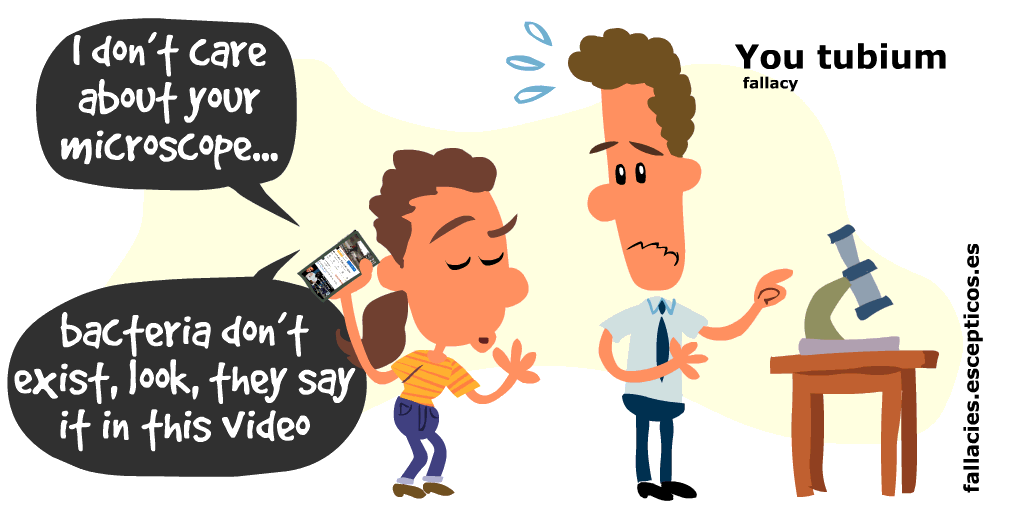Not just because a Youtube video tells us something, does that something get closer to being true.
Source, ciencioides y scoop.it
Who cares about evidence when you can find a particular Youtube video in which someone is claiming right what you want to believe? We all know Youtube is a trustworthy source, and that its reliability range can easily be reckoned by taking a look at the amount of likes it has.
“Youtubium fallacy” doesn’t officially exist, but it summarizes perfectly the amount of fallacies someone falls for when they want to present the conspiracy documentaries they have watched on Youtube above any well grounded scientific evidence in a debate.
The name has been inspired by the website of the biotechnologist JM Mulet. Its first appearance was recorded in this book.
Example
Nazis have a secret base on the moon; it has been clearly explained by fuzzy -yet irrefutable- images in this Youtube video.
To refute it
Call the media into question: an internet video from a dodgy source. We need to consider this is actually an argument appealing to voice of authority, in which the usual incarnation of the “wise person” or “the expert” has been replaced by the internet (the same way they were by tv or books, back in the day) as the repository of truth.
Whenever the source is not referenced, both definitions and examples have been extracted from a translation of Jaime Wilson [email protected] based on Stephen’s Guide to the Logical Fallacies. Copyright 1995-1998 Stephen Downes. Brandon, Manitoba, Canada.
These texts have been modified by Miguel A. Lerma and now by us to adapt them -and those taken from Wikipedia- to our format.
